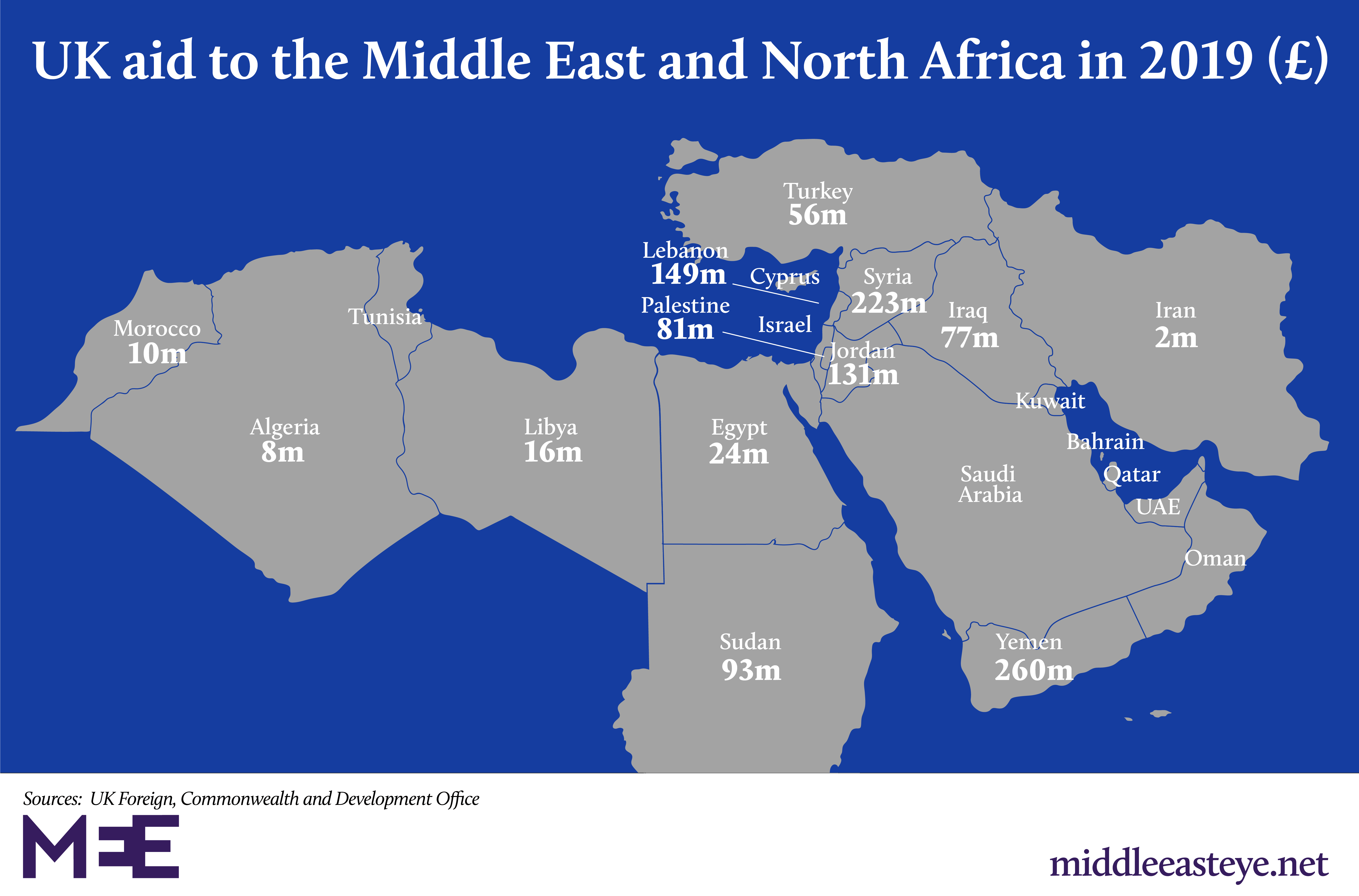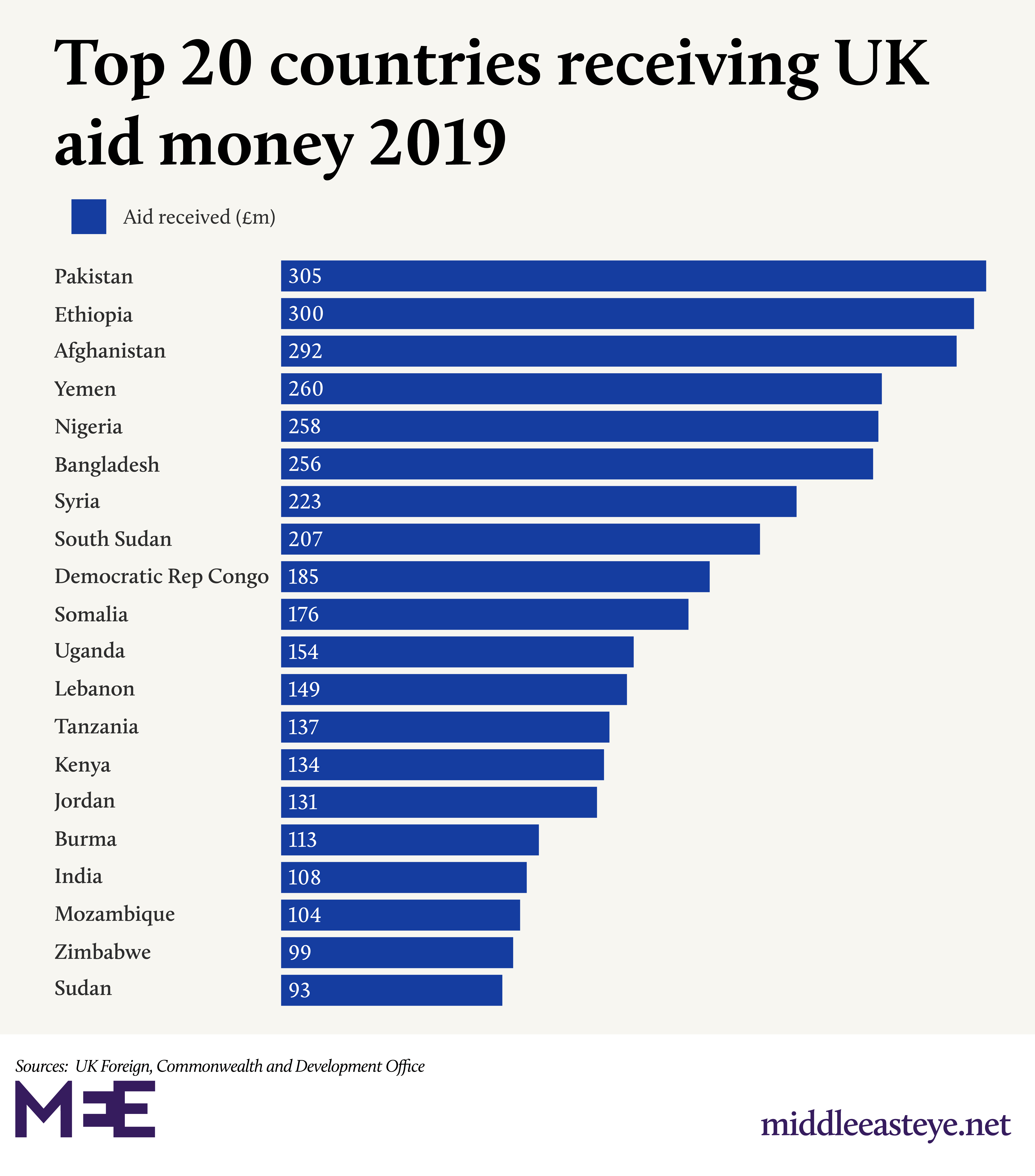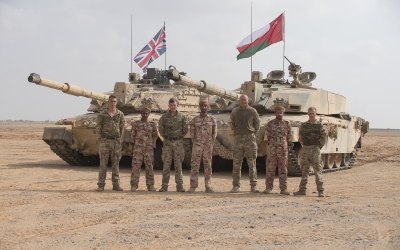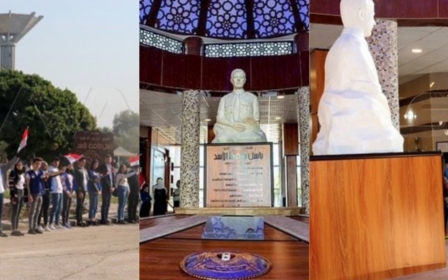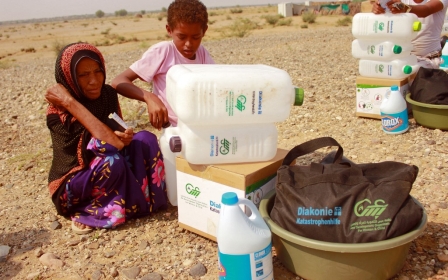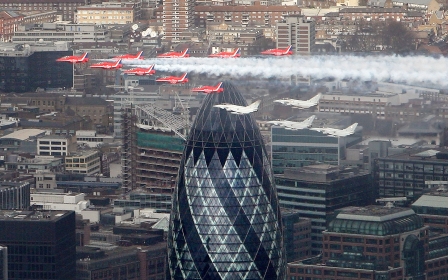How the UK's foreign aid cut could affect Middle East countries most in need
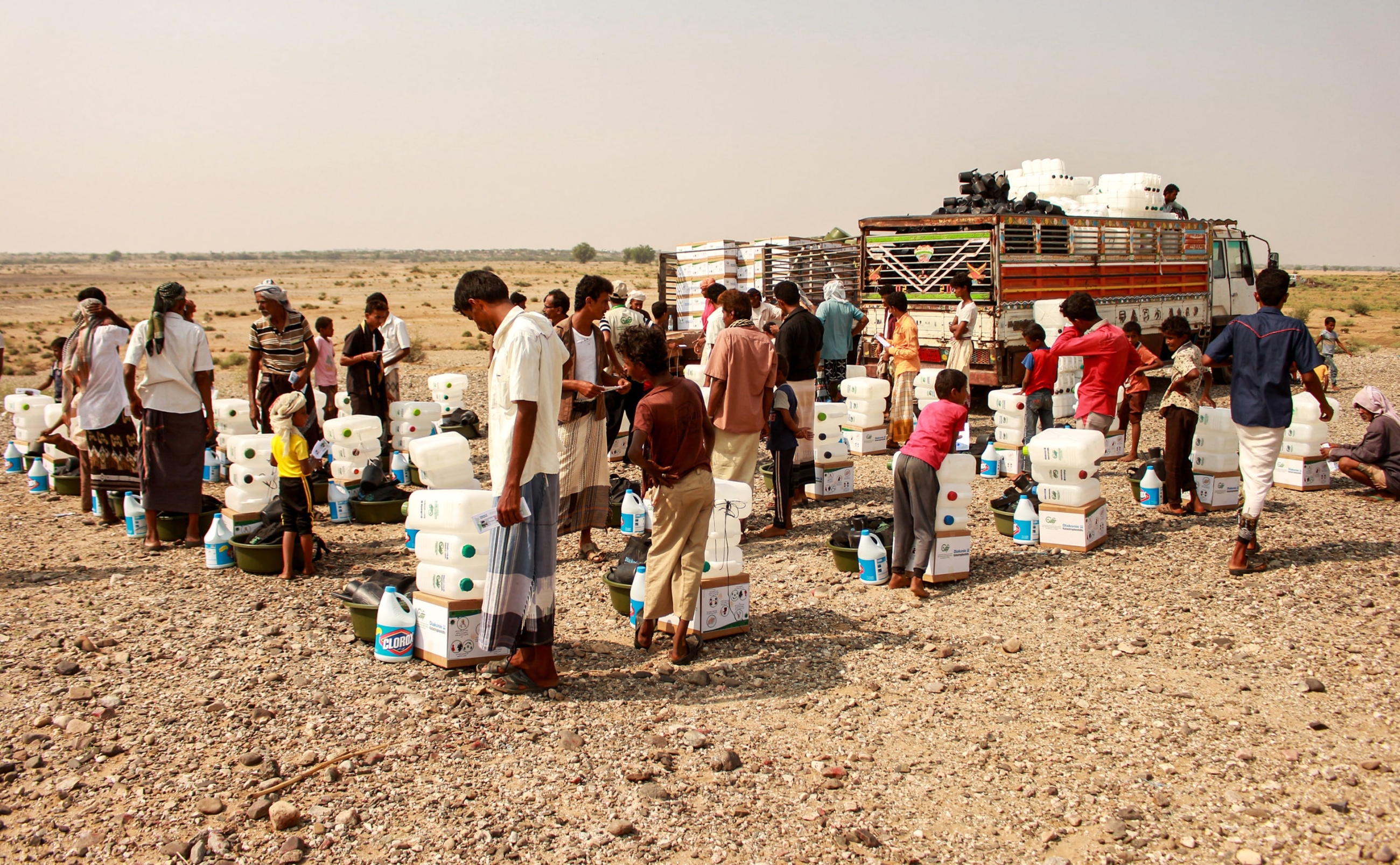
The UK government announced this week that it will cut its annual foreign aid spending from 0.7 percent of GDP to 0.5 percent - a decision that could have a significant impact on vulnerable people in the Middle East.
Chancellor Rishi Sunak made the announcement on Wednesday as part of the government’s annual spending review. Sunak said the drop in funds, which amounts to about £4bn a year, was a “temporary” measure to help deal with the coronavirus crisis at home.
'We cannot genuinely claim to be global Britain nor serious about creating post-conflict strategies for countries like Libya and Yemen that could lead to great UK prosperity when our hard power is not matched by our soft power'
- Tobias Elwood MP
The move has been widely criticised, including by three former prime ministers (Gordon Brown, David Cameron and Tony Blair), the Archbishop of Canterbury Justin Welby, Nobel Peace Prize laureate Malala Yousafzai and over 200 charities and NGOs.
Baroness Sugg, government minister for sustainable development, overseas territories and the Caribbean, resigned over the decision, calling it “fundamentally wrong”.
Meanwhile, Conservative MP and chair of the Defence Select Committee Tobias Elwood said that the aid cut would lead to a “vacuum in some of the poorest countries in the world”, which China and Russia may “extend their authoritarian influence” into as a result.
“We cannot genuinely claim to be global Britain nor serious about creating post-conflict strategies for countries like Libya and Yemen that could lead to great UK prosperity when our hard power is not matched by our soft power,” Elwood said.
Libya and Yemen are among several countries in the Middle East and North Africa that currently receive official development assistance from the UK government, and could be affected by the sizeable cut in funds.
UK aid in the Middle East: a breakdown
The most recent figures from the Foreign, Commonwealth and Development Office (FCDO), released in September 2020, show that countries in the Middle East are among the highest recipients of UK aid.
War-torn Yemen and Syria were in the top 10 countries to receive UK aid money in 2019, at £260m and £223m respectively. The vast majority of this was on humanitarian assistance, with Yemen and Syria by far the two highest recipients of UK humanitarian aid last year.
Lebanon (£149m), Jordan (£131m) and Sudan (£93m) also featured in the top 20 recipients of British aid. They were closely followed by the occupied West Bank and besieged Gaza Strip (£81m), and Iraq (£56m).
With countries in the Middle East and North Africa receiving over £1bn in bilateral aid annually, it is highly likely several countries in the region will see a drop in funds as a result of the significant cut announced by Sunak.
Asked by Middle East Eye whether crucial funds to the region would suffer from the decision, a UK government spokesperson said:
“We will continue to use UK aid to help the world’s poorest and to combat humanitarian crises. This will include investment into new British capabilities to address conflict and instability in the places where we can make the greatest difference.”
'Nobody can eat a gun': Arms and aid in Yemen
In Yemen, a particular concern among some NGOs is that the UK may in fact be doing more to cause the country's humanitarian crisis than to combat it.
The UK has consistently sold arms to a Saudi-led coalition that has carried out more than 20,000 air strikes in Yemen since the civil war broke out in 2015. One-third of those strikes have been on non-military sites, including schools, factories and hospitals, according to the Yemen Data Project.
Global charity Oxfam, which provides humanitarian support in Yemen, said last week that G20 countries had exported arms to Saudi Arabia worth three times the value of aid given to Yemen since 2015.
"Making billions from arms exports which fuel the conflict while providing a small fraction of that in aid to Yemen is both immoral and incoherent. The world’s wealthiest nations cannot continue to put profits above the Yemeni people,” Muhsin Siddiquey, Oxfam’s Yemen country director, said.
'The decision to cut the aid budget while increasing military spending shows the warped and totally inappropriate priorities of this government'
- Andrew Smith, CAAT
With regards to the UK specifically, the Campaign Against Arms Trade (CAAT) said the government had licensed £5.4bn of arms sales to Saudi Arabia between 2015 and 2020, significantly more than it has given in aid to Yemen over the same period.
The figure for arms sold to Riyadh is likely to be even higher, as it doesn’t include "open" licences granted, which allow an unlimited transfer of some weapon types.
“Nobody can eat a gun,” Andrew Smith of CAAT told Middle East Eye. “Unfortunately, even before the budget cut was announced, the sums which have been given [to Yemen] are a fraction of the value of the weapons that have been sold to the Saudi-led coalition that is inflicting the bombardment”.
Smith said that UK Prime Minister Boris Johnson and his colleagues “bear a great deal of responsibility for the crisis”.
Johnson announced plans last week to increase military spending by £16.5bn over four years, a rise of more than 10 percent. This comes as new research showed just how wide Britain's military presence in the Middle East is, with over 23 bases across the region.
“The decision to cut the aid budget while increasing military spending shows the warped and totally inappropriate priorities of this government. The consequences of this disgraceful decision will be felt by people in desperate situations,” Smith said.
Syrian and Palestinian refugee fears
Figures released in April showed that the UK government had spent over £3bn in aid since 2012 to address the crisis resulting from the war in Syria.
Syria has directly received £1.4bn of that, while neighbouring countries, including Lebanon (£678m), Jordan (£654m) and Turkey (£354m) also received funds to help refugees displaced by the conflict.
“Syria... is currently experiencing the worst economic crisis it has seen since the start of the war almost a decade ago. Over nine million people now lack adequate access to food - more than at any other time during the conflict,” a spokesperson for the International Rescue Committee (IRC) told MEE.
“The price of bread has increased by 300 percent since January this year alone, and there are also many more children begging in the streets and a growing number involved in hard labour.”
Last month, images of people in Syria’s capital Damascus being forced to wait in cages while queueing for bread sparked condemnation on social media.
“We don’t yet know where the cuts will fall, but we hope that despite this announcement the UK government will continue to prioritise funding to the most vulnerable and conflict affected, including those in Syria,” the IRC spokesperson said.
Meanwhile, Palestinian refugees in the region will also be worried about a cut in British funding.
Last year, the UK government contributed £56m to UNRWA, the UN agency for Palestinian refugees. It also committed £33.5m of new funds to the agency in July this year.
When asked by MEE, the FCDO did not specify whether the aid cut would impact funds to help Palestinian refugees.
UNRWA is already cash-strapped, and said earlier this month that it had “never recovered” from the total US funding cut imposed by President Donald Trump in 2018.
“Despite the immense efforts to raise sufficient funds in 2020 to maintain UNRWA’s critical services to 5.7 million Palestinian refugees across the Middle East… UNRWA has run out of money,” agency spokesperson Tamara Alrifai said.
“If we do not have additional funding by the end of this month, November, then we will have to enact really disheartening measures that will affect the salaries of our frontline 28,000 UNRWA staff, in the middle of a global health emergency.”
Middle East Eye propose une couverture et une analyse indépendantes et incomparables du Moyen-Orient, de l’Afrique du Nord et d’autres régions du monde. Pour en savoir plus sur la reprise de ce contenu et les frais qui s’appliquent, veuillez remplir ce formulaire [en anglais]. Pour en savoir plus sur MEE, cliquez ici [en anglais].


